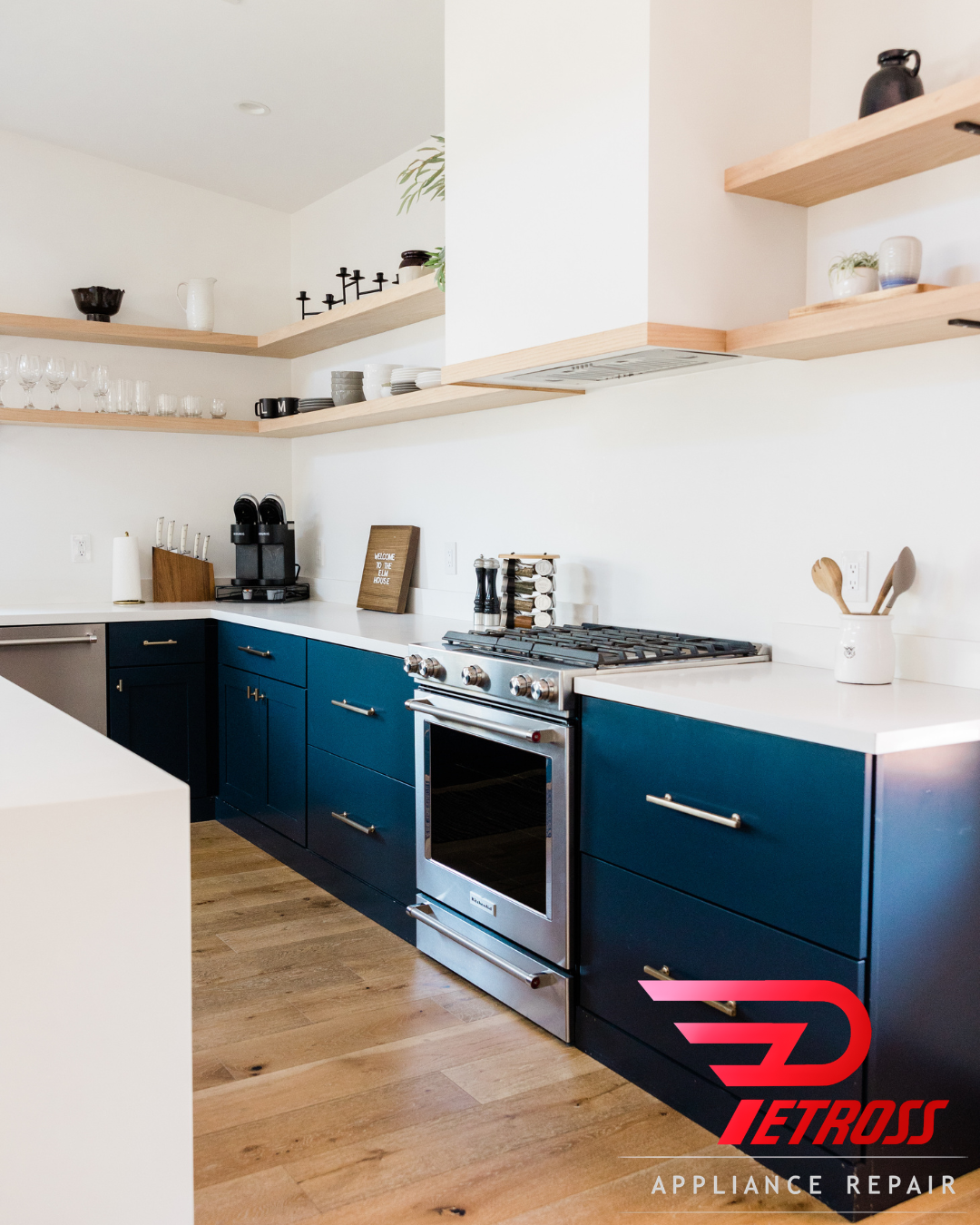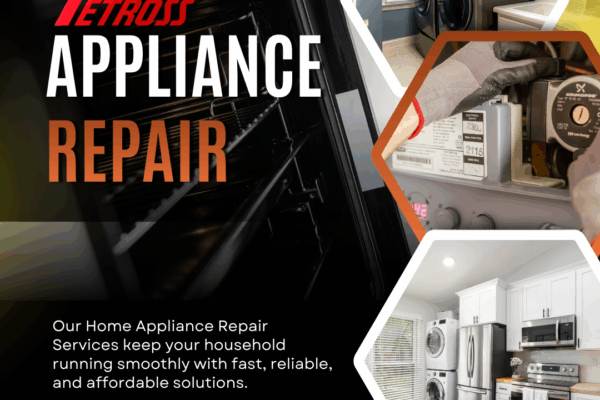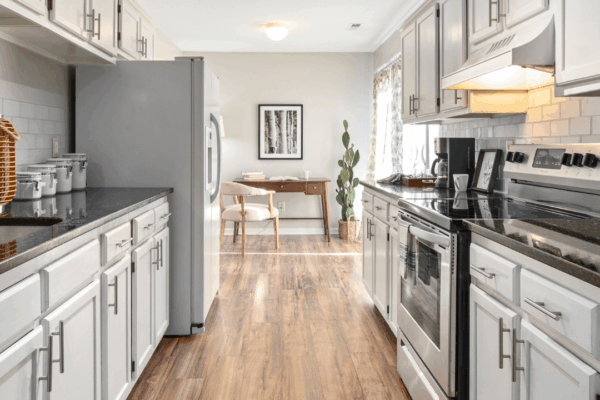
Safe Practices for Gas Appliance Use in Your NYC Home
Safe Practices for Gas Appliance Use in Your NYC Home
What Are the Common Gas Safety Practices for Appliances?
How to Properly Install Gas Appliances?
What Safety Guidelines Should Be Followed for Gas Stoves?
Why is Ventilation Important for Gas Appliances?
How Can I Detect a Gas Leak in My Home?
What Should I Do If I Smell Gas?
How to Use a Gas Detector Effectively?
What Are the Signs of a Gas Leak?
What Are the Risks Associated with Gas Appliances?
How Can Gas Appliances Create Carbon Monoxide?
What Hazards Are Present with a Gas Leak?
Why Is It Essential to Have a Safety Plan for Gas Appliances?
How Often Should Gas Appliances Be Inspected?
What Does the Inspection Process for Gas Appliances Involve?
How to Regularly Check Gas Lines and Connectors?
What Are the New York State Laws Regarding Gas Appliance Inspections?
What Should I Know About Gas Appliance Maintenance?
How to Maintain Your Gas Stove for Safe Operation?
What Are the Best Practices for Servicing Gas Equipment?
When Should I Call a Professional for Gas Service?
What Are the Emergency Procedures for Gas Leaks?
What Steps to Take if You Suspect a Gas Leak?
When Should You Call 911 for a Gas Emergency?
How to Safely Evacuate the Area in Case of a Gas Leak?
Safe Practices for Gas Appliance Use in Your NYC Home
Gas appliances are commonplace in many New York City homes, providing essential services such as heating, cooking, and hot water. However, with the convenience they bring, it’s crucial to understand the importance of gas safety practices. This article outlines best practices for the use of gas appliances, how to detect leaks, the risks involved, and the necessary maintenance and emergency procedures. By following these guidelines, you can ensure a safer environment for you and your family.
What Are the Common Gas Safety Practices for Appliances?
How to Properly Install Gas Appliances?
When installing new gas appliances, it is vital to adhere to safety guidelines to prevent potential hazards. Proper installation begins with ensuring that the gas line is compatible with the appliance and that the gas connector is securely attached. Using a qualified technician is highly recommended, as they will ensure that the appliance is connected correctly and that there are no leaks present. Additionally, after installation, it’s crucial to inspect the area for any signs of gas smell or leaks, ensuring that the appliance ignites correctly and that combustion occurs efficiently.
Furthermore, it’s important to check that all gas appliances are installed according to the manufacturer’s specifications. This includes ensuring adequate ventilation to prevent the buildup of harmful gases like carbon monoxide. Before using a newly installed gas appliance, always check for proper operation and functionality. If you ever notice issues with gas flow or smell, it’s imperative to contact a gas service professional. Following these installation practices not only protects your home but also ensures that the appliance operates safely.
What Safety Guidelines Should Be Followed for Gas Stoves?
Gas stoves require specific safety measures to ensure safe cooking practices. Always ensure the stove burners are clean and free from grease that could ignite and cause a fire hazard. Before using the stove, check that all burners are properly ignited and that the flame is blue. A yellow or orange flame may indicate improper combustion, which can lead to carbon monoxide production. Additionally, never leave the stove unattended while in use, and keep combustibles away from the cooking area to reduce fire risk.
In the event of any unusual odors, such as the rotten egg smell associated with natural gas due to added mercaptan, it’s crucial to take immediate action. Turn off the stove, avoid using electrical appliances, and exit the premises. Always have a working carbon monoxide detector installed in your kitchen and throughout your home. Regularly inspect the gas lines and connectors for signs of wear or damage. By following these safety guidelines, you can prevent accidents and ensure that your cooking experience remains safe.
Why is Ventilation Important for Gas Appliances?
Ventilation plays a critical role in the safe operation of gas appliances, as it helps to disperse harmful gases like carbon monoxide. Gas appliances consume oxygen during combustion, and without proper ventilation, indoor air quality can deteriorate, leading to dangerous situations. Ensure that your kitchen and other areas with gas appliances are well-ventilated, either through windows or exhaust fans. This will help maintain a steady flow of fresh air and reduce the risk of gas buildup.
Moreover, if you are using gas heaters or any gas-powered equipment indoors, adequate ventilation is essential to prevent the accumulation of carbon monoxide, which is odorless and can be fatal. Regular inspections of vents and ducts are necessary to ensure they are free from blockages caused by dust, snow, or ice. Always prioritize ventilation when using gas appliances, as this is a key prevention strategy against potential gas-related hazards.
How Can I Detect a Gas Leak in My Home?
What Should I Do If I Smell Gas?
If you detect a gas smell, often described as similar to rotten eggs, it’s crucial to act quickly and safely. First and foremost, do not attempt to locate the source of the leak yourself. Instead, evacuate the area immediately and ensure that all occupants, including pets, leave the premises. Do not use any electrical devices, including lights or phones, as these could ignite the gas. Once you are at a safe distance, call your gas service provider or 911 to report the leak.
After leaving the area, it’s important to notify your neighbors, especially if you live in a shared building, as they may also be at risk. Wait for trained responders to arrive and handle the situation properly. Always keep a carbon monoxide detector installed and functional in your home, as this can provide an additional layer of safety against gas leaks. Being aware of these steps can save lives and prevent property damage in the event of a gas leak.
How to Use a Gas Detector Effectively?
Gas detectors are vital tools for identifying gas leaks early, preventing potential disasters. To use a gas detector effectively, ensure it is properly installed in a central location within your home, away from any obstructions that could hinder its operation. Regularly test the detector by pressing the test button, and replace the batteries at least twice a year or when the low battery signal activates. It’s also important to familiarize yourself with the device’s alarm signals, as these alerts can vary depending on the manufacturer.
Additionally, keep the area around the gas detector clean and dust-free to ensure optimal performance. If the alarm goes off, treat it seriously and evacuate your home. After reaching safety, contact a gas service professional to investigate. Regular maintenance of your gas detector is essential to ensure it functions correctly. By following these practices, you can enhance your home’s safety and quickly respond to gas leaks.
What Are the Signs of a Gas Leak?
Recognizing the signs of a gas leak is crucial for ensuring safety in your home. The most common indicator is the distinctive smell of natural gas, often likened to rotten eggs due to the added odorant mercaptan. In addition to smell, you may also notice hissing or whistling sounds near gas lines or appliances, which can suggest escaping gas. Other signs include dead or discolored vegetation near gas lines and an increase in your gas bill without a corresponding increase in usage.
If you suspect a gas leak, it’s essential to remain calm and take immediate action. Always trust your instincts; if something feels off, it’s better to err on the side of caution. Regularly check gas appliances and lines for any visible damage or corrosion, as these can also indicate a leak. By staying vigilant and informed about these signs, you can act quickly and prevent potential hazards associated with gas leaks.
What Are the Risks Associated with Gas Appliances?
How Can Gas Appliances Create Carbon Monoxide?
Gas appliances, when functioning improperly, can produce carbon monoxide, a colorless and odorless gas that poses severe health risks. This occurs when there is incomplete combustion due to a lack of sufficient oxygen or malfunctioning burners. For example, a gas stove that is not vented properly can lead to the accumulation of carbon monoxide in your home, which can be dangerous. Regular maintenance and inspection of gas appliances are essential to ensure they are working efficiently and safely.
Moreover, installing appliances according to the manufacturer’s guidelines and ensuring proper ventilation reduces the risk of carbon monoxide production. If you notice symptoms such as headaches, dizziness, or nausea, it is crucial to evacuate your home and seek fresh air immediately. Installing carbon monoxide detectors throughout your home can provide early warning signs of dangerous gas buildup. Understanding how gas appliances can create carbon monoxide is vital for maintaining a safe living environment.
What Hazards Are Present with a Gas Leak?
Gas leaks pose serious hazards that can result in devastating consequences. The most immediate risk is the potential for explosions or fires, especially in enclosed spaces where gas can accumulate. Additionally, prolonged exposure to natural gas can lead to health issues, including headaches, nausea, and even unconsciousness due to oxygen displacement. The presence of gas in your home can also pose significant risks to your property and personal belongings, as fire or explosions can cause extensive damage.
Furthermore, gas leaks can lead to environmental hazards, as they contribute to air pollution and can affect surrounding wildlife and vegetation. Regular inspections and maintenance of gas appliances can help identify and mitigate these hazards before they escalate. If you suspect a gas leak, it’s crucial to act quickly and contact your gas service provider or emergency services. Understanding the risks associated with gas leaks is essential for protecting your home and family.
Why Is It Essential to Have a Safety Plan for Gas Appliances?
Having a safety plan in place for gas appliances is essential for ensuring the well-being of your household. A well-thought-out plan will outline steps to take in case of gas leaks or emergencies, helping to provide peace of mind and a structured response. This plan should include evacuation routes, designated meeting points, and emergency contact numbers for local gas services and emergency responders. Regularly reviewing and practicing this plan with your family can help ensure everyone knows what to do in an emergency.
Additionally, educating all household members about the signs of a gas leak and the importance of carbon monoxide detectors is vital. A safety plan not only prepares you for emergencies but also encourages regular maintenance of gas appliances to prevent potential hazards. By being proactive and prepared, you can significantly reduce the risk associated with gas appliances and ensure a safe living environment for your family.
How Often Should Gas Appliances Be Inspected?
What Does the Inspection Process for Gas Appliances Involve?
Regular inspections of gas appliances are essential for maintaining safety and efficiency. The inspection process typically begins with a thorough examination of the appliance, including gas lines, connectors, and burners. A qualified technician will check for leaks and ensure that all components are functioning optimally. They will also assess ventilation systems to confirm that harmful gases are being expelled properly from your home.
During the inspection, the technician may test the appliance for proper combustion and efficiency, ensuring it operates within safety standards. Additionally, they will check that all safety features, such as shut-off valves and ignition systems, are working correctly. It is recommended to have gas appliances inspected at least once a year, or more frequently if any issues arise. By keeping up with regular inspections, you can prevent potential hazards and ensure the longevity of your gas appliances.
How to Regularly Check Gas Lines and Connectors?
Regularly checking gas lines and connectors is a crucial aspect of maintaining gas appliances and ensuring safety in your home. Start by visually inspecting the gas lines for any signs of wear, corrosion, or damage. Look for any leaks by applying a soapy water solution to the connectors; if bubbles form, that indicates a leak. Additionally, ensure that all connectors are tightly secured and that there are no loose fittings that could allow gas to escape.
Furthermore, it’s important to periodically check for any changes in the performance of your gas appliances. If you notice a decline in efficiency or unusual sounds, this may indicate an issue with the gas line or appliance. Always prioritize safety by keeping a carbon monoxide detector in your home and testing it regularly. By taking proactive steps to check gas lines and connectors, you can help prevent leaks and ensure your appliances operate safely.
What Are the New York State Laws Regarding Gas Appliance Inspections?
New York State law requires that gas appliances be inspected periodically to ensure safety and compliance with regulations. These inspections are typically mandated for residential buildings and must be conducted by a licensed professional. The law outlines specific guidelines regarding the frequency of inspections, generally recommending annual checks for gas appliances. This helps to identify potential safety issues before they become serious problems.
Additionally, property owners are responsible for maintaining their gas lines and appliances in good working order, ensuring that they adhere to safety codes. Failure to comply with these regulations can lead to fines and increased liability in the event of an accident. It is advisable for homeowners to stay informed about local laws and regulations regarding gas appliance inspections to ensure compliance and safety. Following these legal guidelines not only protects your home but also contributes to the overall safety of the community.
What Should I Know About Gas Appliance Maintenance?
How to Maintain Your Gas Stove for Safe Operation?
Maintaining your gas stove is essential for ensuring safe operation and efficiency. Start by regularly cleaning the burners to remove any food debris or spills that could obstruct gas flow and affect combustion. Check the flame color; a consistent blue flame indicates proper combustion, while a yellow or orange flame suggests a problem that needs addressing. Ensure that the stove is well-ventilated, as this helps to disperse any harmful gases produced during cooking.
Additionally, inspect the gas connectors for any signs of wear or damage. If you notice any issues, it’s crucial to contact a qualified technician to evaluate and replace the components as necessary. Regular maintenance not only enhances the safety of your gas stove but also extends its lifespan. By following these steps, you can ensure that your gas stove operates safely and efficiently, providing peace of mind while cooking.
What Are the Best Practices for Servicing Gas Equipment?
Servicing gas equipment requires a careful approach to ensure safety and optimal performance. Best practices include scheduling regular maintenance checks with qualified professionals who specialize in gas appliances. During these service visits, technicians will inspect the entire system, including gas lines, connectors, and combustion efficiency, to ensure that everything operates as intended. It’s also important to keep a record of all service history and repairs for future reference.
Furthermore, always inform the technician of any irregularities you’ve experienced, such as unusual smells or performance issues. After servicing, test the appliances to ensure they are functioning correctly and that there are no lingering gas odors. Regular servicing not only helps to prevent potential hazards but also improves the efficiency of gas equipment, resulting in lower energy costs. By adhering to these best practices, you can maintain a safe and efficient gas system in your home.
When Should I Call a Professional for Gas Service?
Knowing when to call a professional for gas service is critical for home safety. You should contact a gas service technician immediately if you smell gas or hear hissing sounds near appliances or gas lines. Additionally, if your gas appliances are not functioning correctly, such as burners not igniting or producing a strange flame color, it’s essential to seek professional help. Never attempt to diagnose or repair gas-related issues on your own, as this could lead to dangerous situations.
Moreover, if your carbon monoxide detector goes off or you experience symptoms such as headaches or dizziness, leave the area immediately and call 911 or your gas service provider. Regular inspections and maintenance are also essential, and scheduling these checks can help prevent emergencies. By recognizing the signs that indicate professional assistance is needed, you can ensure your home remains safe from gas-related hazards.
What Are the Emergency Procedures for Gas Leaks?
What Steps to Take if You Suspect a Gas Leak?
If you suspect a gas leak, it’s crucial to act swiftly and safely. First, leave the area immediately, ensuring that all occupants and pets evacuate without delay. Avoid using any electrical devices, including light switches or phones, as these can create sparks that ignite gas. Once you are at a safe distance from the building, call your gas service provider or 911 to report the leak.
Do not attempt to locate the source of the leak or re-enter the property until professionals have declared it safe. It’s also important to notify neighbors, especially in multi-unit buildings, as they could also be affected. Additionally, familiarize yourself with emergency procedures and ensure that everyone in your household understands what to do in such situations. By being prepared and knowing the appropriate steps to take, you can help prevent potential disasters related to gas leaks.
When Should You Call 911 for a Gas Emergency?
Calling 911 for a gas emergency should be done without hesitation if there is a suspected gas leak, especially if you observe flames or hear hissing sounds. If you have symptoms like dizziness or headaches, which could indicate carbon monoxide exposure, it is essential to seek medical attention immediately. Even if the gas leak appears small, it is better to err on the side of caution, as conditions can change rapidly.
Additionally, if you notice a strong gas odor but cannot identify the source, contacting emergency services is crucial. They have the expertise and equipment to handle gas leaks safely. Always prioritize safety and never assume that the situation is under control. By understanding when to call 911, you can act quickly to protect yourself and others during a gas emergency.
How to Safely Evacuate the Area in Case of a Gas Leak?
In the event of a gas leak, safely evacuating the area is critical to ensuring everyone’s safety. Begin by calmly instructing all occupants to leave the premises immediately, prioritizing those who may need assistance. Avoid using any electrical sources, such as lights and phones, as these can spark and ignite gas. Close doors behind you to help contain the gas, but do not lock them.
Once outside, move to a safe distance away from the building, ideally at least 300 feet, and do not re-enter until trained responders have assessed the situation. Notify neighbors, particularly in shared buildings, to make sure they are aware of the potential danger. Always have a designated meeting point established for your family in case of emergencies. By being prepared and knowing how to evacuate safely, you can minimize risks associated with gas leaks.




